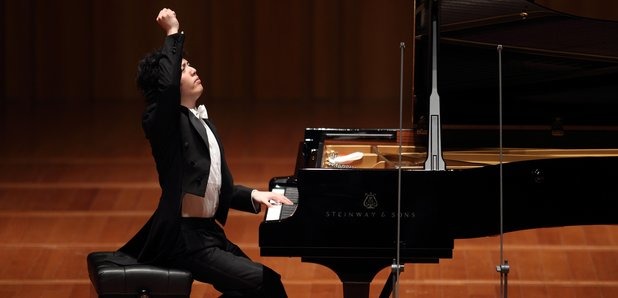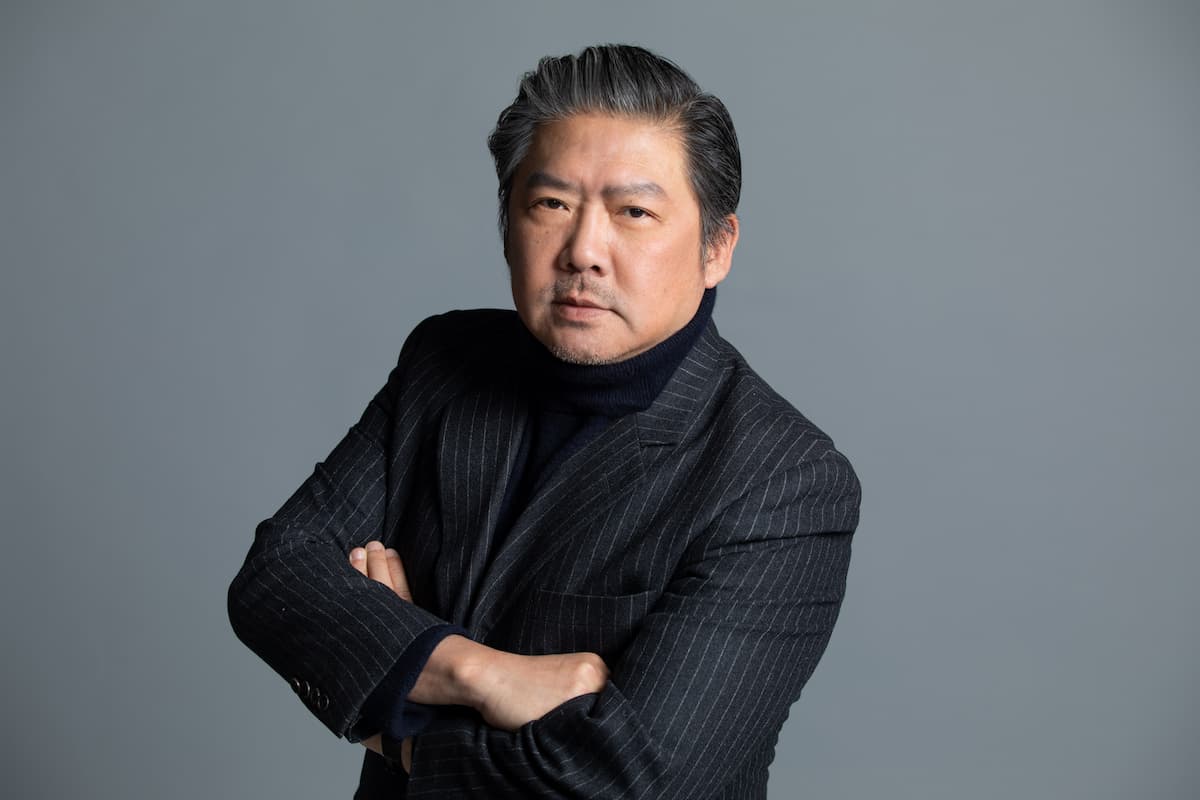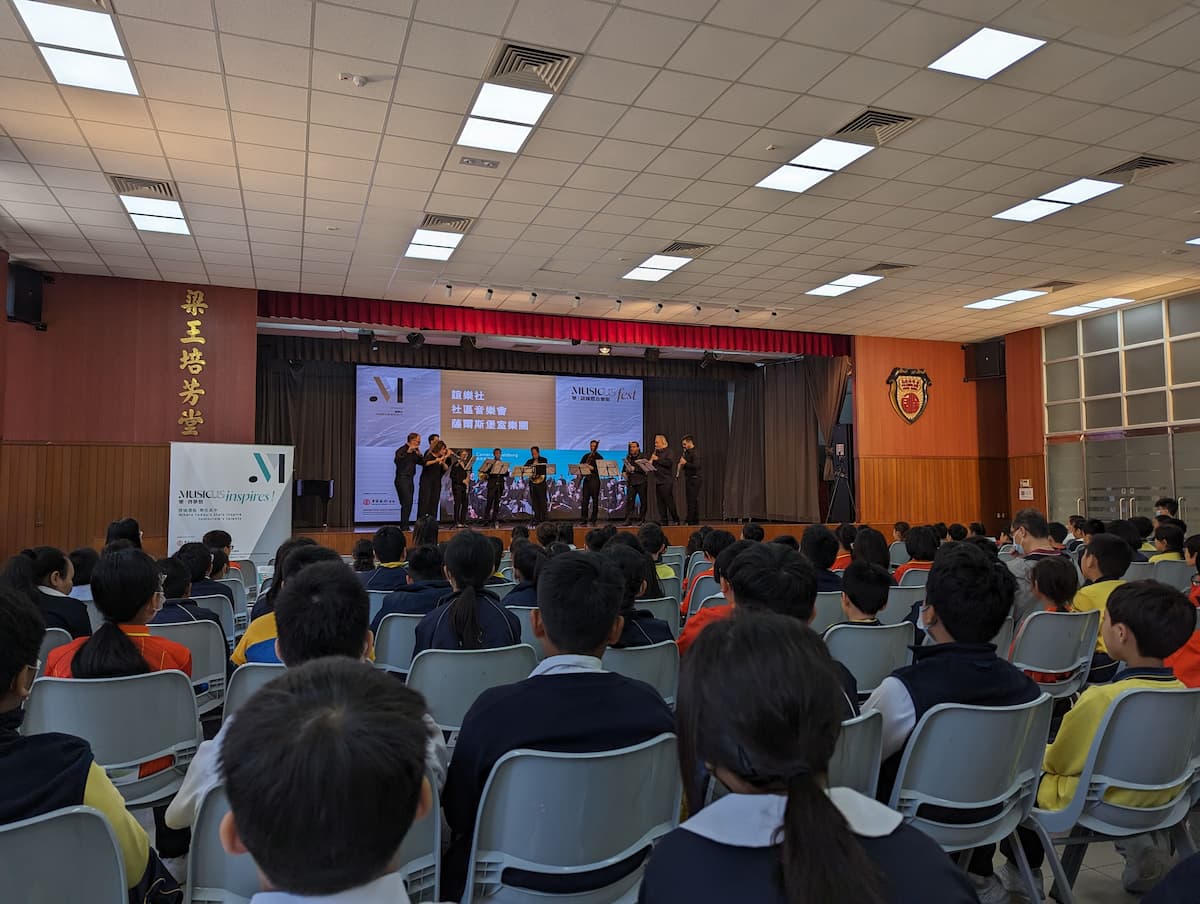As the world becomes increasingly polarized, China stands in a unique and generous position where listeners are able to enjoy concerts given by musicians coming from conflicting, even rival political camps. This is probably the only place in the world where one can easily sit back and relax, without worrying about grave repercussions, by listening to the Mariinsky Orchestra coming from St Petersburg, followed by the Philadelphia Orchestra performing in the same city in a matter of days.
This is where “arts above politics” finds its safest, and probably strangest, haven, where the cultural authority shows indifference, if not tolerance, to the names that might cause the decent people from the West, men and more often women alike, to raise eyebrows: Placido Domingo, Charles Dutoit, Valery Gergiev, Anna Netrebko, Denis Matsuev. Among them, some fell in the #metoo campaign, some were sidelined for refusing to choose a stance, and some denied for keeping quiet verbally.

Yundi Li © assets5.classicfm.com
Yet China, following its own playbook, involves itself in a different kind of cancel culture. Yundi, who fell into oblivion in 2021 due to allegedly soliciting prostitution, became the talk of the town when he gave a recital tour in Australia. His name, once as priceless as Lang Lang, has largely disappeared from the public domain by the official narrative. He is cancelled in the realm of the borderlines.
All these happened because the country lifted most restrictions on visiting artists in March, and by the end of the third quarter, all of the Covid era regulations on international travel were gone, paving the way for a surge in the number of performances given by both visiting musicians and their Chinese counterparts.
Here’re some of my top picks after flying 40 flights covering almost 90,000 kilometers and spending 122 hours airborne all over the year.
Feel the rage
Talks on the pandemic, even the victory over it, have largely disappeared from the official narrative since March after the national congresses.
Maybe there’s been a shift of focus in the ideology. Maybe the top echelon of the country decided to move forward or, simply, to let go. Maybe the prolonged discussion and big reveal of the too many but little-known heartbroken and frightening experiences will just instigate people’s anger towards the inability of the man or men in power.
That’s why I was taken aback by the performance by the Shanghai Symphony Orchestra of Verdi’s Requiem, originally scheduled in November 2022 but postponed due to Covid restrictions in Shanghai on April 12th. Even in an areligious country like China, people would be too blunt, not aware of a requiem as a service of the Catholic funeral mass and the timing of it on the eve of Easter Weekend. To call the performance a miracle would be an understatement. It’s God’s will that the concert takes place.

Long Yu
I was further shocked, in a positive sense, that Long Yu, who led the performance over two consecutive nights, had the guts to deliver a brief speech on the first night (the second performance is live televised).
He said in Mandarin (with my translation):”Thank you for coming. As we are enjoying the beautiful spring of April, we shall not forget what happened last year. Tonight, I dedicate this performance to the citizens of Shanghai who have suffered immensely from the Covid restrictions, and to those who have supported them nevertheless. Thank you.”
His gesture was vigorously resonated by the reaction from the audience. The beautifully translated and unabridged Chinese subtitles on display from the LED screens enabled the packed audience to grasp the text sung. It must be quite an unearthly experience for some to read words from a full Latin mass in public at a concert hall.
There was a long and sustained curtain call for the conductor, the orchestra, the choir, and the singers: tenor Xiahou Jinxu, soprano Yu Guanqun, mezzo-soprano Zhu Huiling, and bass-baritone Shen Yang.
I can see people weeping in Libera me. I can hear the SOUND and FURY in Dies irae. And since mom’s health deteriorated during the harsh lockdown because she couldn’t get proper medical assistance in time (she passed away on Dec 27, 2023 at 79), this moment just went personal and very emotional.
Staging Chinese Oppenheimer
It would be unfair to say that Tang Jianping (唐建平), one of the most prolific opera composers, is closely following international trends, but he does offer an alternative narrative on topics all too familiar to the opera nuts.
Think about Nixon in China by John Adams, Tang’s Premiere Zhou Enlai, which received its premiere in 2022, gave a detailed account of the psychological warfare between the Chinese premiere and the American president during Nixon’s icebreaking visit to China.
In 2023, Tang did it again. John Adams’ Doctor Atomic, an operatic biography of Oppenheimer, found a distant if not irrelevant echo in Tang’s 221 Sword Forging. The opera, commissioned by the Qinghai Opera and Dance Company, reveals a secret military base code name 221 in a remote area of Qinghai province that assembled the atomic bomb in the 1950s. Rather than focusing on a single giant, the opera is built around the love story between two couples working in the base, their sacrifice, and eventually the death of one. The opera ended with an imposing newsreel of a mushroom cloud from China’s first nuclear test in 1959.
The premiere in March received only a restricted audience amid concerns about classified information. With all materials used in the opera deemed declassified, it received two runs at the NCPA in Beijing and a third run in Hangzhou during the China Opera Festival in May.
Here’s how the Chinese Manhattan Project sounds and looks like.
Yin Chengzong launches national tour
Listening to a home recital by the piano legend Yin Chengzong is like a pilgrimage that resonates with Herrenchiemsee.
The ferry takes you from the hustle and bustle of the town of Amoy (Xiamen) to Kulangsu, another tourist spot. From the pier it’s a half an hour walk ascending the hill into serenity.
Strategically located on the hilltop, Yin’s residence stands on the second highest point on Kulangsu with a private garden and a breathtaking panorama of the sea. But that’s just the beginning.
At 81, Yin still practises up to six hours a day and swims for one hour in order to keep fit. It takes Goliath strength for a man of his age to come up with a programme of Debussy‘s Clair de Lune, followed immediately by Brahms Piano Sonata No. 3 in f minor, and then, a ten minute intermission. In the second half, he played Schumann‘s Traumerei, Schubert Piano Sonata in B flat major D. 960, and three generous encores, all beautifully executed.
I consider myself extremely blessed to be granted a seat on the couch among the 40 lucky ones invited to this most exclusive salon in early April.
The home recital also launched Yin’s extensive national tour in which he played a mixture of solo works and concertos, including Rachmaninoff‘s Piano Concerto No. 2, Mozart’s Piano Concerto No. 23, and his very own creation, the Yellow River Piano Concerto.
A new startup
Jaap van Zweden unveiled the inaugural Hainan Island International Music Festival in December by conducting the festival’s orchestra in an all-Beethoven programme at the vividly lit Haikou Bay Performance Centre.
Jieni Wan (萬捷旎), pianist and founding artistic director, was the soloist in Beethoven‘s Piano Concerto No. 3, a piece sandwiched by Egmont Overture and Symphony No. 5. There was no intermission.
Bearing the slogan “Resonance of the Waves” and under the auspices of the Bureau of Publicity of Hainan, the Festival runs from 10-24 December, presenting 12 major concerts and dozens of flash mobs all over the scenery spots in Haikou, Hainan’s provincial capital, signalling mounting effort in cultural spending by the island otherwise known for duty-free shopping, tropical weather, and coconut tree.
Ideas of a winter festival in Hainan, China’s second largest island, first occurred to Jieni in 2020 when she returned to China after finishing her postgraduate studies in Munich and Yale. It takes Jieni, who stays in Hainan for winter retreat during the Lunar New Year, three years to lobby the authority and, leading a production team of 50 staff members, another three months to prepare for the launch on December 10.
The 27-year-old Wan, arguably one of the youngest directors of a music festival, handpicked the 80-member Festival orchestra. Foreign musicians of the orchestra, including American, Korean, Czech, Russian, German, Spanish, and Greek working in China, primarily come from three municipal orchestras: Suzhou Symphony, Straits Symphony of Fuzhou, and Ningbo Symphony Orchestra. She flew to visit Jaap multiple times in a bid to snatch him for the Festival debut.
Classics revived
In May I travelled to Xiamen for a concert, not expecting it to be a life-changing event. It’s not yet another opera gala where wealthy donors walk on the red carpet holding champagne and opera glasses waiting to be entertained by the arias of old Italian and French masters.
The gala, hosted by Zheng Xiaoying Opera Centre, was intended to revive three opera gems largely forgotten by the public or even the professionals nowadays from the 1950s to 1970s. Why? Not because of the music but because the stories they tell fall out of favour and couldn’t cope with the ideology at present.
Take Huang Anlun’s (黃安倫) Flower Guardian, for example; the grand opera in two acts composed by Huang in 1979 during the immediate aftermath of the Cultural Revolution. With a subject deemed too sensitive to address even at that time, it received its first and only performance in the same year by the China National Opera in Beijing and then fell into oblivion in China until the resurrection of Zheng Xiaoying Opera Centre by performing the most lyrical parts of it, including a mesmerizing duet between two love birds who are determined to fight for justice in an age of anarchy.
Remembered with a style
Programme of concert halls inevitably centres around anniversaries, and that’s why I listened to a lot of Rachmaninoff, Brahms, Ligeti, Berlioz, Wagner, Verdi and Zhu Jian’er (朱践耳) in 2023. How about Francis Poulenc, who died in 1963 in Noizay near Paris?
To mark his 50th death anniversary, Shanghai based veteran soprano and professor Chen Qilian (陳其蓮) presented a liederabend in April at the Shanghai Conservatory of Music singing a dozen songs and cycles carefully chosen from the composer’s 140 some melodies for solo voice. A former protégé of Gerard Mortier at La Monnaie who learned her craft from a close associate of Pierre Bernac, leading Poulenc interpreter, Chen excels in French and marvels in Poulenc’s exquisite songs, albeit her aging voice. She is accompanied on the piano by Hsu Wei-En.
The digital orchestra
Ordos is an enormous town inhabited by a tiny population sparsely scattered on the Inner Mongolian prairies, two and a half hours by air from Shanghai. I went there in August to listen to the Ordos Symphony Orchestra under the baton of its newly appointed music director Gao Jian (高健) at the Ordos Grand Theatre in a programme of Stravinsky, Copland, and Beethoven.
Members of the orchestra, over 50 some, all read music from iPads paired with bluetooth page turner pedals equipped since last July. This makes Ordos Symphony the first and foremost orchestra in China fully and completely converted to digitalised sheet music, perfect for them to play under windy circumstances.
The orchestra is affiliated with the Performing Arts Calvaries. Founded in 1951, the Ordos Performing Arts Calvaries as they had been known by then started on horseback and camels carrying rifles as means of self-defense from wolves in addition to musical instruments, accessing the remotest corners of the vast land, bringing entertainment, medical assistance sometimes and party guidelines to the nomads.
The Calvaries are still doing this nowadays, without the presence of rifles, though, on the wheels.
Living composers celebrated
China is never short of contemporary music festivals benefiting from generous public funding, but 2023 is all the more astonishing. Living composers and their music are celebrated in an unprecedented scale throughout the year across the nation in Beijing, Shanghai, Chengdu, Xiamen, Hangzhou, Harbin, Lanzhou, Guangzhou and Yichang etc. The many occasions where their music is featured are funded by the ministry-level government, municipalities, conservatories, or even the private sector.
The inaugural Guangming Chamber Music Festival, taking place in November in Shenzhen, sets an example of how arts, science, and public interest benefit each other as the city of Shenzhen, where tech giants like Tencent, Huawei, and BYD are quartered, is seeking the pole position in culture as well.
Under the stewardship of composer Ye Xiaogang (葉小鋼), the festival is jointly hosted by the Chinese University of Hong Kong Shenzhen Conservatory and the Guangming District of Shenzhen. Three of its concerts showcased the tour de force of the younger generation of composers, while the seminar on music and tech, participated by 20 leading experts and young composers from around the country, looks into the future of music as a creation by mankind and into the boundary auto-generated music can ever reach out to.
The Russian forces
The Mariinsky Theater and Valery Gergiev launched its largest tour to China in the history of the theater in October, beginning with the ballet troupe performing Swan Lake and Don Quixote in Beijing, inaugurating a new stage of the National Centre for the Performing Arts. This marks already the fourth trip for Gergiev and Mariinsky to perform in China since March when restriction on visiting performing artists was lifted.
The 500 people all-out include the ballet, orchestra, and opera ensembles for a 25-day long extensive tour in China covering major cities like Beijing and Shanghai, as well as provincial cities like Harbin, Nanjing, Zhuhai, Wuxi, Taiyuan, and others from October 10 to November 5.
One of the biggest highlights is the Wagner’s Ring cycle, an outdated production dating back to the last millenium. The re-imagined Das Rheingold and Die Walküre by Gergiev were premiered at the end of the last season at Mariinsky II. The complete re-imagined version, incorporating new lighting and video designs, received its first full run at the Shanghai Grand Theatre on October 16, 18, 20 and 22.
The kids love it

Hong Kong based cellist Trey Lee and Camerata Salzburg travelled to Shanghai for a concert at the China Shanghai International Arts Festival, and then for a residency at Musicus Fest in Hong Kong in November. At Po Leung Kuk, Musicus Fest’s signature community programme attracted in attendance over 120 less privileged pupils and students for an inspiring hour of live music, live feed captured from the stage, and lots of fun thanks to decent Cantonese interpretation.
Ten wind players from Camerata Salzburg demonstrated their instruments before each movement of Joachim Raff‘s Sinfonietta, Op.188, arguing which is the most capable and amusing instrument to learn. Into the fourth and final movement, the musicians stepped off the stage, making their way to the auditorium. Standing with music among the attentive and curious audience, they asked the children to keep quiet so they could hear each other in order to play together. Enticing and alarming at the same time, those few words carry the weight of a thousand to those at war or marching into it.
For more of the best in classical music, sign up for our E-Newsletter
